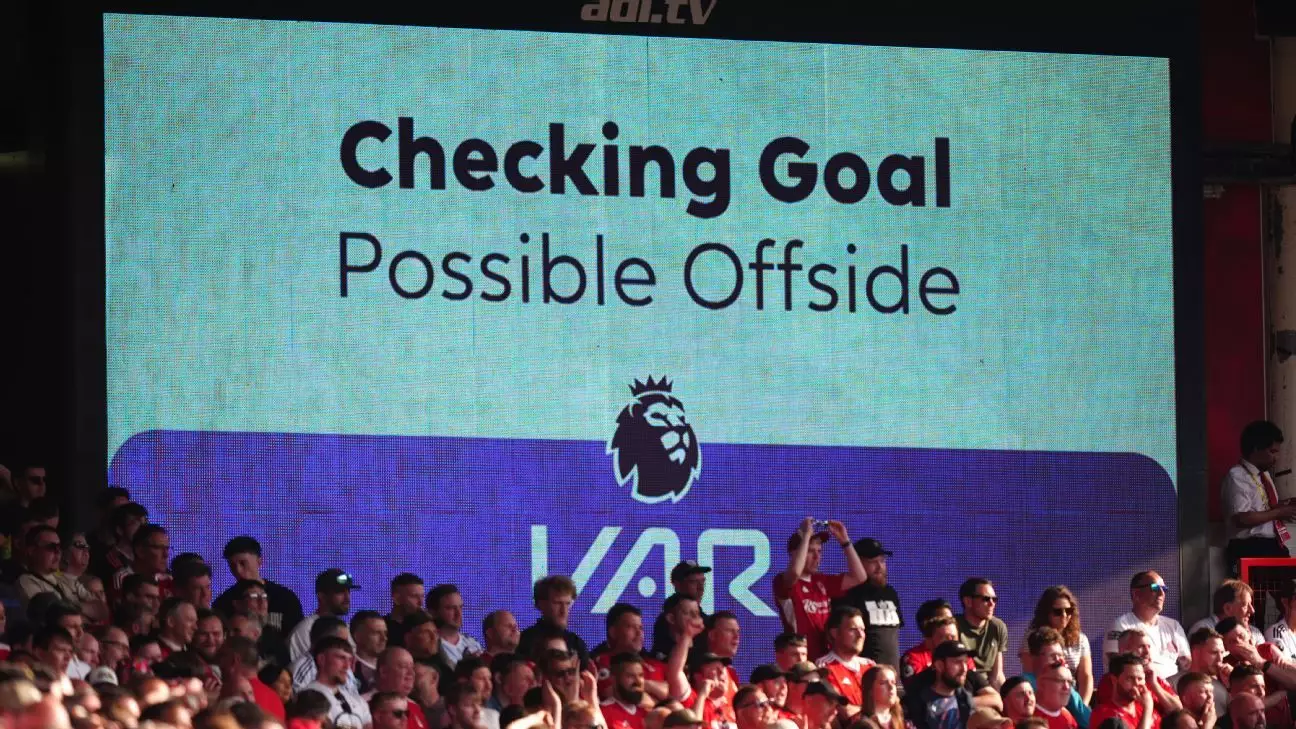Wolverhampton Wanderers recently made a bold move to attempt to get VAR (Video Assistant Referee) scrapped in the Premier League, citing concerns about the impact it has on the spirit of the game. The club’s motion for consideration at the end-of-season AGM raised the question of whether the small increase in accuracy provided by VAR is worth the price being paid. However, sources have indicated that the chances of success for Wolves’ bid are slim, as there is little support for the proposal among the 20 clubs. With 14 clubs needing to vote in favor of scrapping VAR, it is doubtful that the motion will even reach the voting stage.
While Wolves express dissatisfaction with VAR, other Premier League clubs, particularly those regularly playing in European competitions where VAR is prevalent, are unlikely to entertain the idea of removing the technology from the league. Lower-ranked clubs also hesitate to support the move, as they see VAR as a safety net against poor on-field decisions. Despite concerns about the implementation of VAR and the errors logged by the Key Match Incidents (KMI) Panel, which highlights the need for improvement in the processes, many clubs recognize the benefits that VAR brings to the game. Refereeing mistakes being corrected and the overall reduction in errors year-on-year are key factors supporting the continuation of VAR in the Premier League.
One of the main criticisms of VAR is the time-consuming nature of the checks and the delays in decision-making during matches. While errors have been reduced and steps have been taken to address some of the concerns, there is still a lingering feeling that VAR has taken away more from the game than it has added. The introduction of semiautomated offside technology (SAOT) next season aims to improve the efficiency of offside decisions by removing the human element from the process. However, challenges, such as an increased number of marginal decisions and the lack of a built-in tolerance level, may arise with the new technology. Despite efforts to enhance the technology and make it more reliable, there are still areas that need to be addressed to ensure its effectiveness.
Looking ahead, the Premier League is exploring new technologies and initiatives to enhance the officiating of matches. While SAOT is set to revolutionize offside decisions, there are limitations to be considered, such as the lack of a chip within the ball to automatically detect the kick-point. The use of artificial intelligence (AI) powered skeletal tracking technology by Second Spectrum will lay the foundation for SAOT, but further testing and adjustments may be needed to fully implement the system. Additionally, discussions about the possible use of foreign referees have not been planned, with current officiating primarily coming from the UK and the Republic of Ireland.
The debate surrounding the future of VAR in the Premier League continues to divide opinions among clubs and fans. While some advocate for its removal, citing concerns about the impact on the game’s integrity, others see VAR as a necessary tool to ensure fairness and accuracy in decision-making. As the league explores new technologies and improvements to the current system, it remains to be seen how VAR will evolve in the coming seasons. The key challenge will be striking a balance between upholding the spirit of the game and embracing technological advancements to enhance the overall officiating process in the Premier League.

Leave a Reply